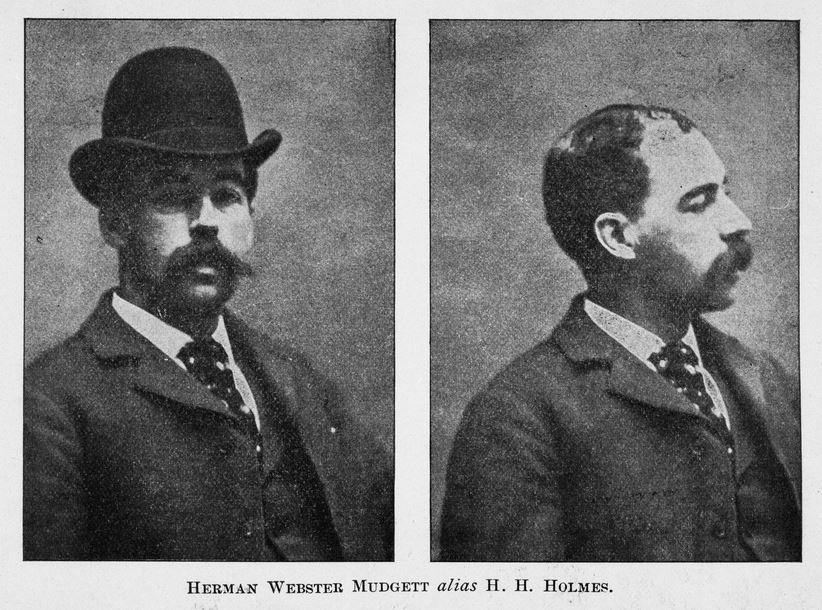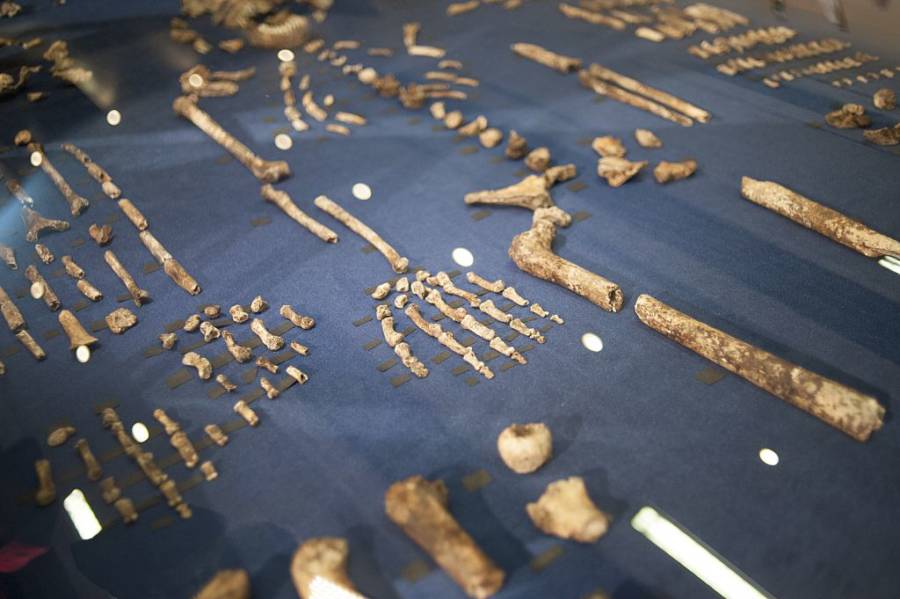The killer who may have faked his death, humankind's new ancestor, uncovered ancient book pages, JFK's earliest recording, and "Baby Louie" the dinosaur.
Body Of “Murder Castle” Serial Killer H.H. Holmes Dug Up To End Rumors That He Faked His Death

H.H. Holmes, one of the most infamous serial killers of all time, was executed on May 7, 1896.
Or so they say.
In the century since his death, rumors have persisted that the brilliant and undoubtedly evil murderer actually managed to escape, living out the remainder of his life in South America.
Now, Holmes’ descendants are hoping to put this persistent myth to rest once and for all — ironically by having their ancestor’s worst nightmare realized.
Last week, researchers in Philadelphia dug up the coffin in which Holmes — born Herman Webster Mudgett — was presumably buried.
They are now testing the bones to determine whether or not they indeed belonged to the legendary figure, who was accused of murdering as many as 200 people.
Dig deeper here.
Scientists Uncover Ancient Human Relative That Lived Alongside Our Ancestors

Stefan Heunis/AFP/Getty ImagesThe skeleton of Homo naledi.
The world of science was pretty shaken up when Homo naledi, a bizarre species of human cousin, was first discovered in South Africa in 2013.
The 15 skeletons were uncovered deep in a cave and, though they looked startlingly similar to humans, their brains were the size of a gorilla’s (about the size of an orange). This apparent indicator of primitivity led scientists to hypothesize that the Homo naledi roamed the world 2.5 to 2.8 million years ago — long before our ancestors arrived on the scene.
But, new research on these fossils along with the recent discovery of a second cave of skeletons has revealed two surprising findings, reported this week in eLife:
First, the Homo naledi existed shockingly recently. And second, the practice of burying the dead is shockingly old.
The bones were discovered to be as little as 236,000 years old, meaning that Homo naledi lived recently enough to have coexisted with modern humans, who first came to be approximately 200,000 years ago.
Discover more here.
Pages From One Of The First Books Ever Printed In England Found In An Old Box

University of ReadingThere are no other known surviving copies of these William Caxton pages from 1476.
Recently uncovered pages dating back to 1476 belonged to one of the first books ever printed in England, experts have confirmed.
Written in bold, red, and black Latin, the text was — appropriately enough — discovered by a librarian at the University of Reading.
Erika Delbeccque was sorting through a box of archives when she noticed the aged, double-sided paper.
Luckily, she had the expertise to recognize the signs of medieval typography.
Read the rest of the story here.





